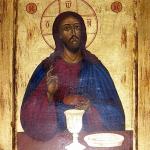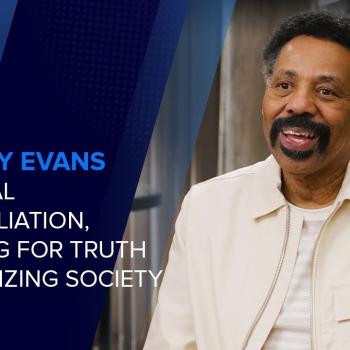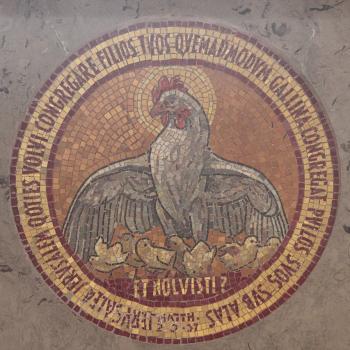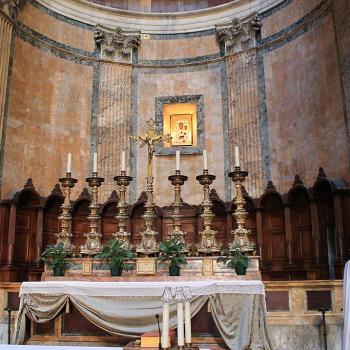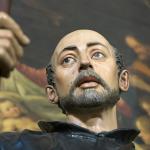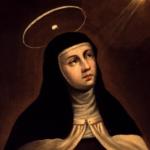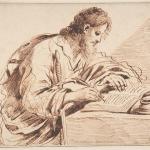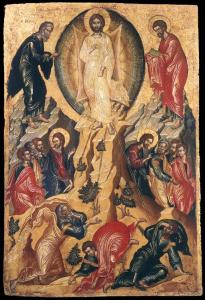
The Transfiguration is one of the most important events in Christ’s earthly ministry. At it, Jesus presented his eternal glory as a great overshadowing light to three chosen disciples, Peter, James, and John. That light is the eternal light of grace, the light which Jesus always had with him, though it was not always apparent, because he had emptied himself of it in relation to his humanity. Jesus demonstrated to Peter, James, and John, that glory, preparing them for the trials and tribulations they were soon to encounter. In doing so, not only did Jesus let his divine nature reveal itself to his disciples, he also showed the kind of participation in grace that is possible for humanity, indeed, for all of creation. We are called to theosis, to partake of the divine nature. We are meant to experience the uncreated light of grace for ourselves. We are meant to share in and experience the glory of God, though of course, we will not do so in the same way as Jesus, for we only participate in it, we do not generate it ourselves, while Jesus, in and through his divinity, is its source. In his humanity, Jesus shares with us the qualities of our humanity, and he is like us, partaking of the divine nature, participating in it. We are shown at the Transfiguration that, indeed, created natures can become full of the uncreated grace, to have it radiate in and through them. To further confirm this, we learn that Moses and Elijah were present with Jesus in this special event: the bright cloud that overshadowed everyone fell upon them just as much as it did Jesus and the three apostles, demonstrating that the grace which is made present in Jesus is able to be shared with all, including those who came before him:
And after six days Jesus took with him Peter and James and John his brother, and led them up a high mountain apart. And he was transfigured before them, and his face shone like the sun, and his garments became white as light. And behold, there appeared to them Moses and Elijah, talking with him. And Peter said to Jesus, “Lord, it is well that we are here; if you wish, I will make three booths here, one for you and one for Moses and one for Elijah.” He was still speaking, when lo, a bright cloud overshadowed them, and a voice from the cloud said, “This is my beloved Son, with whom I am well pleased; listen to him.” When the disciples heard this, they fell on their faces, and were filled with awe. But Jesus came and touched them, saying, “Rise, and have no fear.” And when they lifted up their eyes, they saw no one but Jesus only (Matt. 17:1-8 RSV).
Only Jesus, in his simple human form, remained at the end of the event. The cloud of glory did not last. Moses and Elijah did not remain. Peter, James and John found themselves with Jesus alone. This must not be seen as some sort of denigration of the law and prophets, or anyone who served God before the incarnation. The fact that Moses and Elijah were there with Peter, James, and John indicates, instead, they were put in an equal footing. The source of inspiration which made Moses and Elijah great was divine grace working in and with them. That grace could and would be increased: Moses and Elijah did not lose it, but rather, they received an even greater share of it as the cloud of glory fell upon them. Then, as the event ended, so did their appearance before the apostles. This should not be misinterpreted as if their presence and value was being superseded, that they can now be dismissed from our consideration; rather, we are being shown we should not get caught up in the past. We are to learn to find and experience the presence of God in the moment. We are expected to experience the uncreated light for ourselves without need of such intermediaries. We can and should respect those who came before us, those whose lives prove they walked with God and participated, in some form, with the divine glory. We certainly should recognize those who have more than we have done for God in the economy of salvation. We should honor them. But we should not let ourselves become trapped by the past. We are to stand on the giants who came before us. All things are passing. We are passing. Jesus remains. God remains. The kingdom of God remains. The uncreated light remains. The more we focus on that, the less we focus on the details, the less we get caught up in systematic theological speculations, the more we will let the transcendent glory of God shine without hindrance, settle upon us, and help us participate in that glory for ourselves. It is important for us to become eyewitnesses of the uncreated glory ourselves. Once we are, we can and should share our experience with others, though we should also be careful not to try to define things in such a way we get caught in something secondary and find ourselves way off track as we do so. This seems to be a point made in Second Peter:
For we did not follow cleverly devised myths when we made known to you the power and coming of our Lord Jesus Christ, but we were eyewitnesses of his majesty. For when he received honor and glory from God the Father and the voice was borne to him by the Majestic Glory, “This is my beloved Son, with whom I am well pleased,” we heard this voice borne from heaven, for we were with him on the holy mountain (2 Ptr. 1:16-18 RSV).
What is important is our relationship with God. We should try to integrate ourselves with the uncreated light shown at the Transfiguration. Just as the glory was hid in the humanity of Jesus but always there in his divinity, that glory is also always there, always with us, even when we are not aware of it. Doctrines and dogmas help us become aware of it to some degree, but if we focus on the words while ignoring the spirit behind them, that is, without touching the Spirit for ourselves, we will find ourselves like Peter, who tried to set up booths to cover up and preserve the glory instead of understanding the point of the event itself. Peter wanted to do something good, for he wanted to find a way to make the uncreated light available to all, but the way he would have done so would have hindered it as it would have been put, as it were, in a box, trying to control it and make it available only at Mount Tabor. In reality, we can and should be able to experience it, not at one place, but everywhere – it is available at all times and at all places, if only we can awaken our spiritual senses:
Eternal life, the grace-bestowing vision of the kingdom of God, is available in this world, according to the meaning of this dogma; it is as if a new ascent to Mount Tabor and contemplation of the Lord’s glory takes place. The power of the transfiguration is the kingdom of God, and the “some” who did not taste death before they saw the kingdom of God are not only the disciples but all who commune in eternal life and who are expressly honored with the vision of God’s glory.[1]
Icons, statues of saints, theological doctrines and dogmas, can all be useful and help set us on the right path. But we must take the path for ourselves. We must look within to find the kingdom of God. It is there for the taking. We are meant to embrace it, to participate in it, to let it come to us and find its true residence in us. Indeed, we are to find that the kingdom of God is truly at hand, as it is within us. Wherever we go, there it is. There is nowhere it is not, and so no way for us to find ourselves outside of its glory.
[1] Sergius Bulgakov, “On the Kingdom of God” in The Sophiology of Death. Essays on Eschatology: Personal, Political, Universal. Trans. Roberto J. De La Noval (Eugene, OR: Cascade Books, 2021), 13.
Stay in touch! Like A Little Bit of Nothing on Facebook.
If you liked what you read, please consider sharing it with your friends and family!
N.B.: While I read comments to moderate them, I rarely respond to them. If I don’t respond to your comment directly, don’t assume I am unthankful for it. I appreciate it. But I want readers to feel free to ask questions, and hopefully, dialogue with each other. I have shared what I wanted to say, though some responses will get a brief reply by me, or, if I find it interesting and something I can engage fully, as the foundation for another post. I have had many posts inspired or improved upon thanks to my readers.


